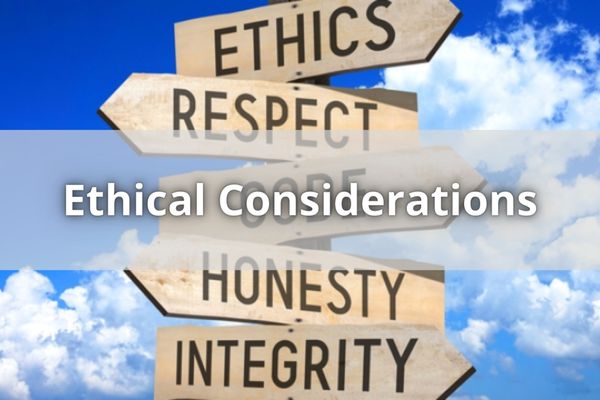School Psychologist Vs School Counselor: The Career Paths
School Counselor Vs School Psychologist. As a teacher, I frequently get asked by parents and peers what the distinction between a school psychologist and a school counselor is. It’s an important question to understand, since both roles play an integral part in helping students with their mental health and wellbeing.
In this article, we’ll take an in-depth look at the similarities and differences between the two professions, including their education and training requirements, responsibilities and duties, working environment, approaches to treatment, focus on mental health, salary and benefits, ethical considerations for each role, parental involvement in treatment methods used by professionals in either role and finally resources available to those working as either a school counselor or psychologist.
Education And Training

You need specialized training to become either a counselor or psychologist, so make sure you understand the requirements of each profession.
A master’s degree in school counseling from an approved university is the minimum requirement to work as a school counselor.
In the meanwhile, you’ll need at least a master’s degree in school psychology, along with post-doctoral experience and certification from the National Association of School Psychologists (NASP), to become a school psychologist. In some states, it’s necessary to hold both state licensure and NASP certification, so check your state’s requirements before beginning your educational path.
While psychologists specialize in the diagnosis and treatment of mental problems, counselors are educated to work with people to help them attain their objectives and examine their feelings.
Although counselors can offer counseling to kids, they usually concentrate more on career preparation and social skill development.
Psychologists are frequently requested to evaluate kids’ academic performance, identify learning difficulties, give IQ tests or personality tests, develop behavior plans for students with special needs, or advise instructors on how to best meet the requirements of certain students.
Both counselors and psychologists work closely with teachers by providing support services such as conflict resolution programs or group counseling activities. Additionally, both professions collaborate with parents when needed as well as other professionals such as speech therapists or psychiatrists when dealing with complex cases.
Moving forward into responsibilities and duties of these two professions will help further clarify their differences.
Responsibilities And Duties
Helping individuals identify and navigate their issues, the counselor and psychologist work together to make sure everyone gets the support they need. School psychologists and school counselors both hold degrees in psychology or counseling, but their duties differ:
Counselors in schools:
- Work one-on-one with pupils to tailor answers to their specific concerns.
- Give parents, teachers, administrators, and other staff members resources.
- Help pupils acquire life skills including communication, problem-solving, decision-making, and conflict resolution.
School Psychologists:
- Diagnose mental health conditions and learning disabilities.
- Develop personalized interventions to help students manage these conditions.
- Utilize research-based methodologies to promote positive change for both the student and the school community as a whole.
The role of the school counselor is more often focused on providing guidance, while that of the psychologist is centered around diagnosis. Both are necessary, though, in order to give kids a secure setting where they may learn without being constrained by their own problems or other people’s expectations of them. They work together to ensure that every student has access to tools that will enable them to prosper academically and personally during their time in school using their combined knowledge in psychology and education.
As a result, it is evident that psychologists and counselors both play crucial roles in ensuring that all students receive the assistance they require within the educational system in order to realize their full potential.
Working Environment
You’ll be working in a collaborative environment with both counselors and psychologists, where everyone is striving to make sure students get the support they need. School psychologists and school counselors have different roles but they work together for the same purpose: helping students achieve academic success. School psychologists work directly with students who are struggling with mental health issues, while many school counselors provide more holistic services that can range from individualized education plans to conflict resolution.
| School Psychologist | School Counselor |
| Work directly with students | Provide a more holistic service |
| Focus on mental health issues | Assist with IEPs and conflict resolutions |
| Understand research-based interventions and assessments | Advocate for student’s rights in a school setting |
| Collaborate closely with teachers, administrators, and families | Help identify outside resources if needed |
Both positions require compassion, skillful listening abilities, problem solving skills, and an understanding of specific laws related to education. Furthermore, it is important that both professionals maintain confidentiality of student records as well as any information shared by other team members involved in providing services. Working in a collaborative environment will help ensure all stakeholders are informed when making decisions about what would be best for each student’s individual needs.
This collaboration between school psychologist or school counselor allows them to approach treatment holistically without making assumptions or judgments about individuals’ learning styles or backgrounds. By combining their expertise they create unique solutions that meet the individual needs of each student so that everyone has equal access to educational opportunities regardless of socio-economic status or cultural differences.
Transitioning into the subsequent section about ‘approaches to treatment’, we will explore how these professionals go about creating effective strategies for helping students reach their educational goals.
Approaches To Treatment
Gaining an understanding of the approaches to treatment used by counselors and psychologists can help you create solutions tailored to each student’s individual needs.
School counselors generally use a holistic approach to treatment, taking into consideration all aspects of a student’s life. They may implement strategies such as behavior modification, conflict resolution, or peer mediation in order to provide intervention and make positive changes for the student.
In contrast, school psychologists frequently concentrate on mental health concerns through evaluations and treatments that are intended to promote students’ emotional wellbeing. These may include psychoeducational evaluations, cognitive testing, psychotherapy sessions, or referrals for specialized services outside of the school environment.
The different approaches taken by school counselors and psychologists often intersect when it comes to helping students achieve success in their academic lives. The combination of strategies provided by both professionals allows them to build an integrated plan that addresses any underlying mental health issues while also providing insight into how best to modify behaviors that are interfering with learning.
Ultimately they strive for similar goals: creating a safe learning environment where every student has an equal opportunity for success regardless of their home life or personal circumstances.
To further focus on mental health within serving the entire school population, many institutions have implemented policies and procedures related to suicide prevention or bullying awareness initiatives which require ongoing training from staff members. By recognizing signs that indicate potential problems early on, teachers can ensure necessary resources are available before situations become more serious or extreme measures need to be taken.
This proactive approach is just one example of how important it is for schools counselors and psychologist alike work together towards finding effective solutions tailored specifically for each individual student’s needs. Moving forward this collaboration will continue to be essential in order for students to receive the most comprehensive care possible during their educational journeys.
Focus On Mental Health

You can ensure that students receive the support they require to cope with any underlying issues and realize their full potential by emphasizing mental health.
While both school counselors and school psychologists are qualified to provide this help, each has a somewhat different approach to working with the student body.
School counselors are typically trained professionals who’ve earned a degree in psychology or counseling. They specialize in helping students identify personal goals and develop strategies for achieving those goals. They often use talk therapy techniques that emphasize self-esteem building activities such as role-playing and journaling exercises. In addition, they may also provide guidance for career planning and academic decisions as well as helping with behavioral problems or conflict resolution.
On the other hand, school psychologists have usually completed an advanced degree program in psychology. They focus more on diagnosing mental health issues by conducting tests such as IQ assessments or personality inventories in order to determine if there is an underlying psychological disorder present that needs treatment.
As such, both professions are capable of providing a variety of mental health services for students including assessment, diagnosis and testing. Given that both school counselors and school psychologists play important roles in addressing the mental health needs of students, it is essential that schools employ both types of professionals so they can work together to effectively support the overall wellbeing of serving the entire student population.
By implementing this comprehensive approach to providing mental health services within their system, schools can create an environment where all students feel supported and safe emotionally which will ultimately lead to better educational outcomes for everyone involved. With these considerations in mind, let’s move on discuss how diagnosis and testing can be used to accurately assess a student’s needs.
Diagnosis And Testing
Testing and diagnosis are necessary for determining a student’s mental health requirements and can offer important information about any underlying problems.
Professionals that specialize in assisting children with their emotional and psychological needs include school counselors and school psychologists. A school counselor typically holds a degree in school counseling or a related field and works mainly on academic issues, while a school psychologist has an advanced degree in psychology or educational psychology and works with students to identify learning disabilities or behavioral issues.
School psychologists work closely with teachers, administrators, parents, and other professional school counselors help students reach their potential. They must complete additional coursework to become certified as a specialist in the areas of child development, clinical practice, assessment techniques, research methods, ethical practices, consultation services, program evaluation, cultural diversity considerations and more.
School counselors must meet state-specific requirements for continuing education credits that vary from state to state; they may also need to maintain certification by the National Board for Certified Counselors (NBCC). Both professions require practitioners to adhere to strict ethical standards when dealing with students’ sensitive information.
Due to the complex nature of mental health diagnoses and treatments involved in this field of study, it’s essential that those providing such services have adequate qualifications and certifications. The right combination of credentials will ensure that each practitioner has met professional standards necessary for providing quality care for children with mental health needs.
Qualifications And Certification
Practitioners need the right credentials and certificates in order to deliver mental health treatments efficiently. A state-issued licensure and at least a master’s degree in psychology from an institution of higher learning are requirements for school psychologists.
Most states need state certification in addition to at least a bachelor’s degree in counseling or a closely related subject for school counselors. Both school psychologists and school counselors need to have experience working with children and adolescents as part of their qualification requirements.
Continuing education is also important for both school counselors and psychologists, as they must stay up-to-date on best practices in mental health care. In addition, some states require that school psychologists maintain board certification throughout their careers. This is done by meeting certain educational standards as well as taking continuing education courses every few years.
The qualifications required of those who offer mental health services are quite rigorous, but they are essential to ensure quality care for our students. With that said, it’s time to turn our attention to salary and benefits for these professionals.
Salary Vs Benefits
My qualifications and certifications are important for working as a school counselor or school psychologist, but the salary and benefits of my career are also essential. Working in mental health is an incredibly rewarding experience, both financially and emotionally. When considering pursuing a career as a school psychologist or a school counselor, I must think about the following:
- Salary range
- Benefits offered
- Job stability
Depending on the area and years of experience, a school counselor’s annual income might range from $30,000 to $80,000 on average. Some firms provide great perks in addition to pay, like health insurance, paid time off, continuing education reimbursements, and others.
When it comes to job stability in this field of mental health work, I’m confident there will always be job opportunities available for qualified individuals who have their credentials in order. This is especially true when one considers the growing need for good counselors in schools due to rising issues like bullying and teen suicide rates among other things.
Rather than summarizing my thoughts on salary and benefits here today, I’d rather transition into our next topic: ethical considerations that come with working as either a school counselor or school psychologist. These ethical considerations play an important role in setting guidelines that help ensure best practices when providing services to clients in this field of work.
Ethical Considerations

In particular when it comes to the responsibilities of school psychologists and school counselors, it is crucial to have a grasp of the ethical issues connected to working in the mental health professionals field in order to provide clients with good services. Both individuals must have a strong knowledge base on ethical principles, which includes keeping client confidentiality, taking steps to ensure they’re not offering advice or judgment that would be outside the scope of their job title, and being mindful of any potential biases they may hold that could influence how they interact with students.
School counselors are responsible for helping students navigate college and career decisions as well as addressing social-emotional issues, while a school psychologist has more specialized training in psychological assessment and interventions. It’s important for each professional to understand their own boundaries when it comes to these areas so they can provide proper guidance without overstepping into another profession’s realm.
Both professionals must be able to see when there may be a contradiction between what is best for the student and what the parent or other stakeholder may want. In these circumstances, it is crucial for them to express their reasoning in detail so that everyone understands why particular judgments are being taken and that those conclusions were motivated by ethical principles rather than bias or personal preference.
Additionally, school psychologists and counselors should constantly be aware of any modifications to state laws governing the provision of mental health services, as well as any new scientific discoveries that may have an influence on the way they interact with kids.
By having an awareness of these ethical considerations associated with working in mental health, both school psychologists and counselors can ensure their practices remain in line with best practices while still providing quality care for all students involved.
As we move forward into discussing parental involvement within this context, it will be important to keep these ethical guidelines top-of-mind so everyone involved can be confident in the decision-making process.
Parental Involvement
Navigating parental involvement in the mental health of students can be a challenging yet rewarding journey for both school counselors and school psychologists alike.It’s crucial to think about how parents can support their children’s mental health in a school environment while also enabling professionals to do their jobs.
In order to guarantee that all needs are satisfied, school counselors and psychologists can establish relationships with both the student and the parent when they work together. For parents who are dealing with mental health difficulties in their family, school counselors are frequently the first port of call. They typically provide basic advice on strategies or resources that families may need in order to support their child’s wellbeing.
School psychologists, meanwhile, offer a more specialized psychological assessment and development of individual plans tailored towards each student’s unique needs. With this level of comprehensive understanding comes an increased responsibility for providing appropriate interventions that involve close collaboration with parents to ensure optimal outcomes for students.
Involving parents can help bridge the gap between what students experience at home and what they experience at school; it can also open up conversations about how best to support them emotionally or behaviorally in both settings. Both school counselors and psychologists have an opportunity to provide valuable guidance through this process by understanding each family’s unique situation and using professional resources when necessary.
Ultimately, such collaboration can result in meaningful progress towards bettering each student’s overall wellbeing — creating a safe place for emotional growth within the home as well as the classroom environment.
Professional Resources

Having discussed the important role parenting plays in the success of school counseling and mental health services, I’d like to focus on another resource for students: professional resources.
School counselors and school psychologists provide special services to help support students’ emotional and psychological well-being. The roles of both a school counselor and psychologist are complementary, yet distinct. School counselors typically focus on helping students with their academic achievement or career development. They often provide guidance about college admissions or job opportunities, as well as offering advice about social issues that may be impacting a student’s educational progress or mental health.
On the other hand, school psychologists are more specialized in providing therapeutic services such as individual or group therapy, crisis intervention, assessments, and consultation with parents and teachers.
School counselors have an important role in providing preventative care through classroom guidance activities, workshops on topics such as managing stress or bullying prevention, and by referring students to external providers when necessary for additional mental health support. In addition to connecting with outside therapists or psychiatrists for specialized treatment if needed, school counselors also collaborate with school psychologists to offer extra support tailored specifically to each student’s needs.
By combining both resources together into one comprehensive package of care, schools can ensure they’re meeting all the needs of their students – from developing better coping skills to finding ways for them to succeed academically despite difficult circumstances.
Conclusion: What Are The Differences Between A School Counselor And A School Psychologist?
It’s clear that both school counselors and psychologists are essential members of any school team. They each give kids, parents, and the community special services. Although the two positions are comparable, they are not the same in terms of education, duties, treatment philosophies, or focus on mental health.
Both roles require a commitment to ethical practice and an understanding of parent involvement in the student’s life. These specialists can significantly improve the lives of individuals they assist provided they have access to the proper resources.
To assist our kids realize their maximum potential, it is ultimately up to us as educators to appreciate the value that both counselors and psychologists contribute with their specialties.







